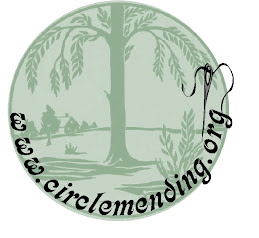This past Tuesday I had the opportunity to be interviewed by NewsNet, and Inland Empire (CA) television station that broadcasts early morning programs, including a highlight on California Lifestyles (whatever that means). I actually was interviewed twice: once for the Corona Genealogical Society and once for the Riverside Folk Song Society. For the latter, I performed one song ("Early One Morning") and talked about our group which meets the 3rd Sat. of every month (next meeting: March 20). I mentioned our recent 50th anniversary celebration and the fact that this group has met almost every month for the past 1/2 century! That has to say something about the folks (some of the original members are still involved): people who love to get together for the sole purpose of making music and enjoying each other's company.
But making music is only part of the mission of the society: we also learn from each other. Whether it is learning new skills on one's chosen instrument(s), learning a new song, or learning about a song or its composer, we usually end up with some level of education occurring at every meeting. Personally, I love the meetings where I learn about the background of a song: why was it written, how has it been changed, who has recorded it, etc. In many cases, it tells about our culture (e.g., a song that has been altered to fit the times) and how we have adapted. Songs can also teach history (and keep it alive from one generation to the next).
Our monthly meetings usually have a theme (last month it was "love or love songs," in honor of Valentine's Day; this month it is "sun and rain"). These cause the participants to think of songs to perform that fit the theme and, hopefully, not rely on old standards; with a theme, we are encouraged to stretch our minds and practice something specific for the evening. Of course, we aren't too strict about the theme and, for example, a song last month might be one the presenter professes "to love," thus making it fit the theme, even if it has nothing to do with love, per se. Some of the fun of the evening is hearing how people justify a song they want to sing (I can already hear some of the explanations for this month: "it was raining the first time I heard this song . . .").
Our ancestors used to gather together to sing and play music, too; probably not as organized as the Riverside Folk Song Society, but for many of the same reasons: to enjoy the camaraderie of fellow musicians, take a break from the stress of daily life, learn something new, and share their talents. I know that my father's ancestry includes musicians, as did my mother's. Too bad the details of songs sung, instruments played, and people who sang together are not as prevalent as records of births, marriages, and deaths. But some instruments were passed down to me as were some pieces of sheet music. I remember my father giving me an old harmonica (actually better built than some that are produced today) along with an instruction manual that was in many pieces (and falling apart more every time I tried to work with it). But I learned to play harmonica from that, even though my father did not know from where he had acquired it. It was just one of those things that had been passed down to him.
If you have instruments or music that have been passed on to you, it is possible you have the clues to learn about the musical past of your ancestors. Above all: treat these items as the artifacts they are - don't store them in extreme temperatures or moisture (or non-moisture) rich environments. If they have not had attention in many years, see about restoring them (old hymn books can be rebound, old instruments can be reconstructed, but these tasks should be done by professionals). Even instruments that are over 100 years old can be restored and played again. Consider taking up where your ancestor left off: take lessons, or join a "song circle" group like the Riverside Folk Song Society and get some help learning to play. You will find that there is no experience as stress-relieving and uplifting as joining with others in song! (And if you don't want to play an instrument, these groups usually welcome non-players to just listen or sing along.)
Subscribe to:
Post Comments (Atom)









No comments:
Post a Comment
Please keep comments related to this post or topic; others will be deleted. Contact blog author directly for other issues.